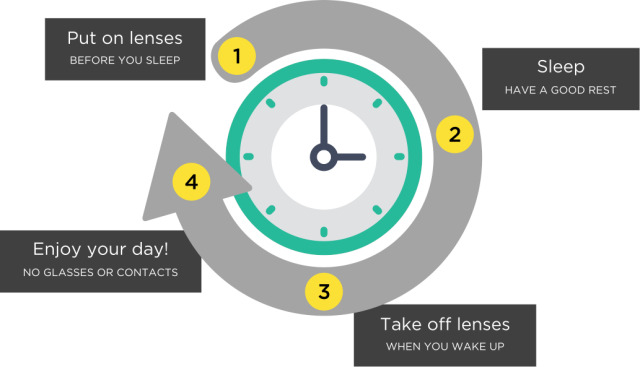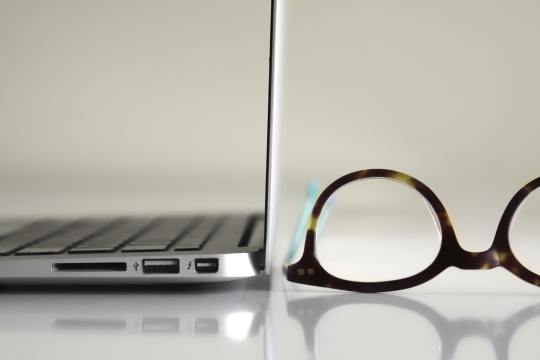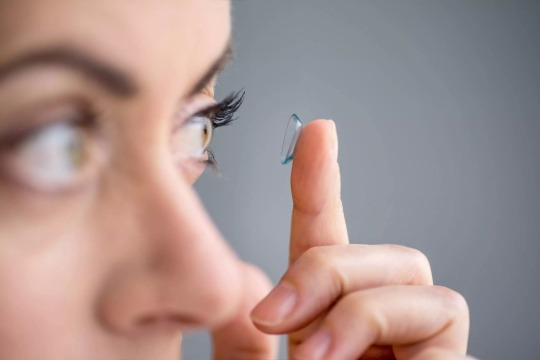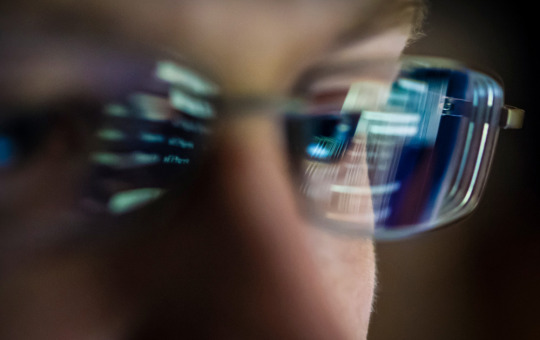
Today we’re going to share some important facts about blue light going over what it is, where it comes from, as well as how it can be good for the eyes, bad for the eyes or potentially ugly.
We’re gonna go over blue light and these are facts about blue light really what it is where it comes from as well as how it can affect our eyes and our bodies.
Now blue light is part of the visible spectrum of light. That is the light that we can see and perceive and which is inside of the electromagnetic spectrum which is basically all forms of light that even our eyes cannot see that includes things like infrared, light x-rays, gamma rays, your microwaves radio waves, TV waves and then of course UV light.
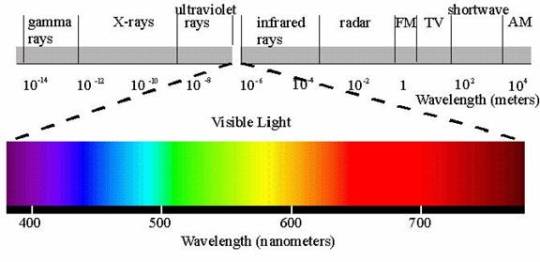
And then we have our visible spectrum which goes from about 400 nanometers of light to about 700 nanometers of light. Within that spectrum between 400 and 500 nanometers of light we call that the kind of blue wavelength light spectrum and even smaller in that section about 400 to 450 nanometers of light that is the high energy visible wavelengths of blue light.
That is the energy of wavelengths that is very close to UV light but this level of blue light penetrates into the eye and can even get to the retina which can potentially be a concern for eye health. As well as our brain health which we will get into momentarily.
Blue light comes from multiple sources most people think of blue light coming from our computer screens and our phones because that is more heavily in the media these days, as we are spending more time in front of these digital screens than ever before. Many people’s jobs now are basically working on a computer all day and they’re spending like eight plus hours in front of a screen. Even young children in developed countries are going to school and they’re using smart boards tablets all day long. And then they come home and do homework again on a computer and yeah they’re in front of a screen all day.
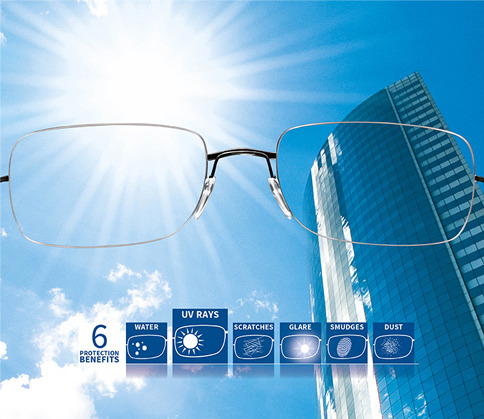
But blue light also comes from other sources including the Sun which is the most major source of all blue light, in fact the reason the sky is blue is because the blue light coming from the Sun and that that light hits different particles in our Earth’s atmosphere and then that scatters and again that’s why the sky is blue. Even lesser well-known is that blue light also comes from our artificial light sources our indoor lighting which right now a lot of us are spending more time indoors and that means we’re exposed to more of this artificial light and this concern about high-energy blue wavelength light being emitted by artificial light sources has been a concern in some countries like France even noted this as a public health concern because we’re transitioning to more efficient light bulbs such as LEDs and they emit a lot of harsh high-energy blue wavelength light.
So not only do we need to be concerned about blue light coming from our computer screen but also from the Sun outside as well as indoor lighting. Of course there are concerns about blue light and we’re gonna get into those, but first blue light also has some benefits to it. Blue light helps with our alertness especially early in the morning. It’s even being used in some light fixtures to help treat certain mood disorders such as seasonal affect disorder. It’s even been shown in some studies to help reduce fatigue for veterans who are being treated with this similar type of high-energy light. And blue light kind of like the lights I have here in the background that can affect your memory as well as changing your mood as I find blue light to be very calming and kind of has a tranquilizing effect.
Blue light plays a significant role in regulating our sleep cycles because having a blue light get into the eye and touch certain retinal ganglion cells that activates a certain part of your brain called the pineal gland and can help regulate the release of melatonin the hormone that helps regulate your sleep cycle.

But that also means that blue light can have the bad negative effect especially if you’re exposed to too much later in the evenings it could inhibit your melatonin release which is gonna delay your sleep cycles and reduce your chance of having a well rest at night sleep and you’re gonna be more fatigued the next day and it even helps inhibit developing good memories which is my concern for especially for young kids who are going to school and trying to learn as they’re not developing those memories then they’re not going to learn as well.
In addition getting somewhere between seven and eight hours of sleep at night has been shown to help reduce your chances of developing memory loss issues as you get older such as dementia and Alzheimer’s.
This is a major concern that I personally have as I have done a lot of Vision Care in senior homes working with the elderly and anybody who’s seeing family members go through things like dementia and Alzheimer’s,it’s not fun and I don’t think anybody wants that.
Alongside having reduced amount of sleep cycles due to exposure of blue light there’s also a lot of people who are experiencing eye fatigue or digital eye strain also sometimes known as computer vision syndrome from overexposure of this harsh blue light and you may have experienced it yourself while staring at the computer and part of this is believed to be because blue light is scattered again more easily and by staring at the computer screen that extra blue light will scatter and that could even reduce the amount of contrast and you maybe have felt this but looking at a computer screen it seems really sharp and kind of almost too bright and it kind of hurts your eyes a little bit and then maybe you have seen other reading devices such as Kindles have a different type of a background screen which is not as harsh as other computer screens and phones which allows you to have more comfort when reading.
Although the results of study about eye fatigue and blue light are a little bit mixed the vast majority of people who have either reached out to me or have seen me in the clinic usually do report that they feel our eyes are more light-sensitive around blue light sources.
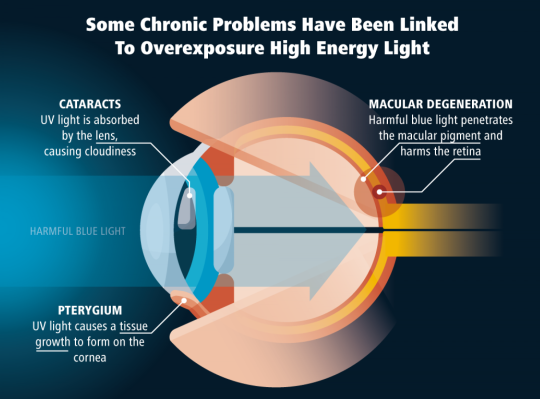
The real ugly concern about blue light has to do with the theories and some studies that suggest that blue light especially that high-energy wavelength visible blue light could cause retinal damage to the back of the eye. This is a kind of a touchy subject for a lot of eye care professionals because there are studies mostly animal studies in done in mass mice and rats that show that the high-energy light can cause damage to these retinal cells and it kind of makes sense that this high-energy light which is very close to UV light which we know UV light from the Sun can cause things like sunburn and skin cancer it can damage ourselves this high-energy light since it passes through and touches the retina that it may pose a risk
There’s multiple studies that either show or suggest that this high-energy light increases the amount of metabolic demand on these cells. The retina is already the most metabolically active tissue in the body and if you’re adding this really high level of demand on the retina over time that the cellular debris that gets built up through this hell activation of the retina that this cellular debris is going to build up what we call drusen which is a major significant factor for the development of age-related macular degeneration.
Now a big disclaimer I like to give out is that these are done on animal studies mostly rats with high-energy light really close to their face and then there are some studies done on on human retinal cells that have been transplanted to a petri dish and again completed in the laboratory, however the human eye does have defense mechanisms to help protect metabolic changes to the retina, at least when it’s not a really high energy source because if you are gonna stare at the Sun or a laser pointer or something with a high amount of energy that can cause burn damage to the retina and we call that solar retinopathy when it’s on the Sun.
So do not look in those high-energy light sources but you can understand why these theories and studies have us concerned about blue light. But at that same time just to be fair to everyone epidemiological studies also do show mixed results at best at really for or against that light exposure whether it be from the computer screen or the Sun outside could lead to retinal damage.





























































